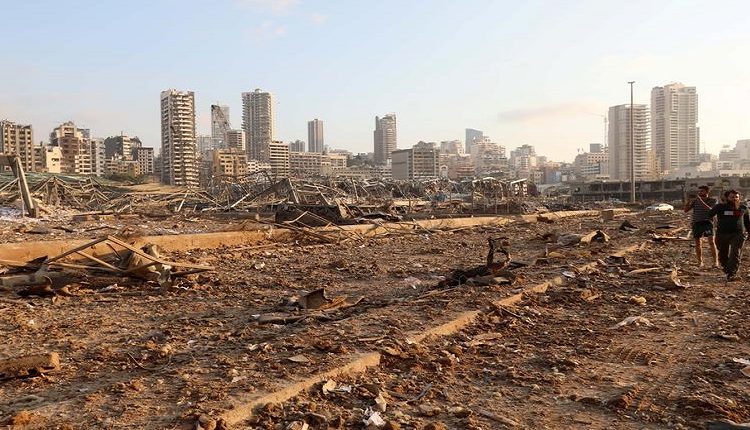Egypt sends 28 tonnes of food, medical supplies to aid Beirut
Egypt has sent two military planes carrying the ninth shipment of aid to Lebanon’s Beirut in the form of 28 tonnes of food and medical supplies on Monday morning.
The package, which arrived at Beirut’s Rafic Hariri International Airport, is the latest Egyptian support shipment to Lebanon after a deadly explosion in the capital earlier this month killed at least 177 people and injured thousands.
It comprised of aid presented from Egyptian non-profit organizations, including the Egyptian Food Bank and the Righteousness and Piety Association.
The explosion, the most powerful ever to rip through Beirut, caused property damage worth $10 to $15 billion and left the port district a wreck of mangled masonry and disabled the main entry port for imports that feed a nation of more than 6 million people.
Egyptian Ambassador to Lebanon Yasser Elwi received the two planes, along with Egypt’s Consul General Ahmed Imam and Egyptian Consul Wael El-Sisi.
In a meeting with Elwi on Monday, Lebanese Foreign Minister Charbel Wehbe expressed appreciation to Egypt for the huge aid it has provided Lebanon since the blast occurred, a statement by the Egyptian Embassy in Lebanon said.
Wehbe said the aid reflects historic and strong relations between the two countries and their peoples.
Wehbe and Elwi also discussed political developments in Lebanon, including the need to accelerate efforts to hold binding parliamentary consultations to form a new government.
Egypt has taken several steps to provide assistance to Lebanon, including launching an airlift to provide humanitarian aid and relief supplies to help in reconstruction efforts.
The first batch of Egyptian aid was delivered to Lebanon on 5 August, one day after the blast, with a planeload of medical supplies.
The aid mainly included dozens of tons of flour to ensure bakeries can continue to produce bread, as strategic stocks of wheat and flour were destroyed in the explosion.
Also, an Egyptian field hospital in Beirut is providing aid to victims of the blast.
On 4 August, a fire broke out at Beirut port, igniting 2,750 tons of highly-explosive ammonium nitrate stored at the port. The cause of the fire remains under investigation.
Documents have emerged showing that the country’s top leadership and security officials were aware of the chemicals that had been stored there for years.



